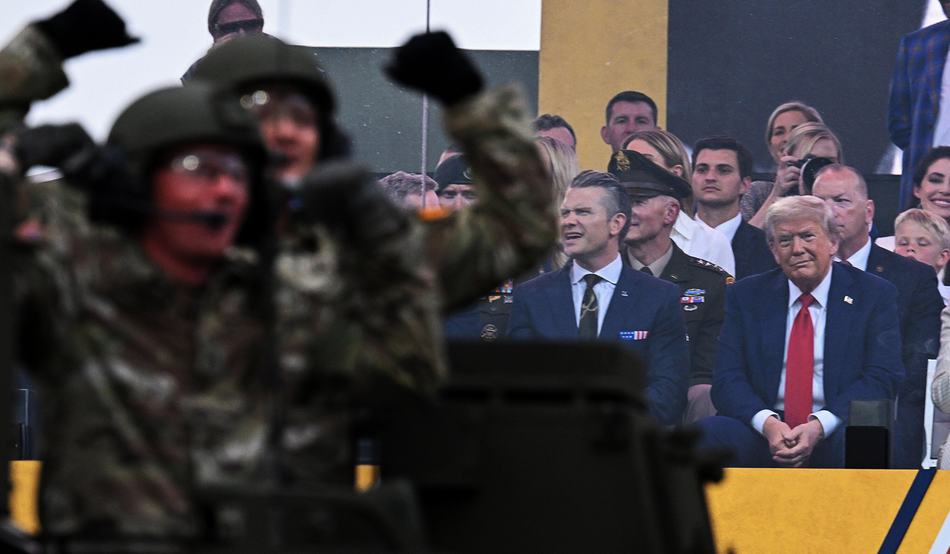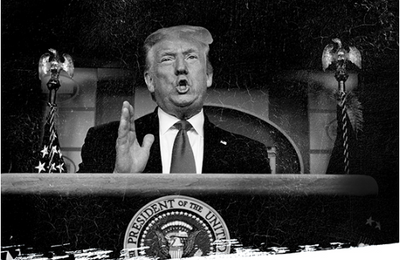In what circumstances should someone in the military or the security services not obey an order? In a democracy the general answer is obvious: orders should be followed. The alternative would be those with lethal or intrusive powers acting of their own accord in a (literally) disorderly way, and their superiors freely ignoring what they are told to do by their supposed civilian masters.
This is why it is fundamental in any democratic state that orders are respected, else there will be no real control of those with immense power. And it also crucial that the military and security services are under public control, something that cannot happen if the orders of ministers are not complied with.
Here the public interest is at one with operational demands. As the relevant sentencing guidelines for disciplinary offences for the United Kingdom military provide: “The integrity and effectiveness of the Armed Forces rely on obedience to commands. Disobedience undermines the chain of command and can seriously affect operational effectiveness, especially while on operations. The authority of superior officers must be upheld and those who flout that authority must be dealt with quickly and proportionately but firmly.”
But the requirement that orders should be followed is a general rule, not a universal one. There is an exception. Not all orders should be followed; not all commands should be obeyed. Take, for example, the very wording of the offence for disobeying an order under section 12 of the Armed Services Act 2006:
“A person subject to service law commits an offence if – (a) he disobeys a lawful command; and (b) he intends to disobey, or is reckless as to whether he disobeys, the command.”
The phrase is repeated in another provision: “A person to whom this subsection applies commits an offence if he fails to use his utmost exertions to carry out the lawful commands of his superior officers.”
See that word “lawful”. It is only an offence to disobey a “lawful” command. This is not mere surplusage. In chapter seven alone of the manual of service law, the phrase “lawful command” is used 29 times. It matters that commands are lawful.
But what does “lawful” mean? The 2006 act does not define the term, but in that service law manual it is stated:
“A command is lawful if:
a. It is within the authority of the person giving it;
b. It is for a proper Service purpose. For example, an officer may not order a Service person to wash their private car or to pay a fine awarded by the Magistrates’ Court as neither order is for a Service purpose;
c. It is possible for the command to be carried out; and
d. It is not contrary to UK domestic law, International Law or relevant local law.”
(Note the mention of international law, and also see the trivial examples given for point (b).)
In practice, few in the UK seem to rely on this exception against the charge of disobeying orders. In 2011 a Royal Navy medical assistant refused to undertake weapons training before deployment to Afghanistan on the basis that it was an unlawful order and that he was a conscientious objector. Yet he was convicted of disobeying that order, imprisoned and then dismissed from the service. His appeal against conviction and sentence lost on every ground.
In the United States, where this topic is currently in the news, the position is broadly similar (though without regard to international law).
The relevant law appears to provide that a person “who willfully disobeys a lawful command…shall be punished”. In wartime that punishment can even be death. But again, see that word “lawful”. The command must be lawful, else disobedience is not an offence. For the US offence, the court martial manual guidance provides the following guidance on what constitutes a “lawful” command.
The manual says among other things:
“An order requiring the performance of a military duty or act may be inferred to be lawful, and it is disobeyed at the peril of the subordinate. This inference does not apply to a patently illegal order, such as one that directs the commission of a crime. […] The lawfulness of an order is a question of law to be determined by the military judge. […] The order must relate to military duty […] The order must not conflict with the statutory or constitutional rights of the person receiving the order.”
On the assumption that the wording of the court martial manual guidance (published by the Department of Defense) accurately reflects the various applicable laws, rules and executive orders on the subject, this means that there are circumstances in which someone serving in the US military—albeit at their own “peril” —can disobey an order if it is unlawful.
And now we come to the US news of the last week or two. In a remarkable video, six Democrat senators and representatives with military or security service backgrounds set out that those now serving are not obliged to comply with unlawful commands. This video should be watched with attention.
What the six members of Congress said was correct—indeed it went no further than that the Department of Defense’s own court martial manual guidance. No particular order is mentioned: the video is framed in general terms.
In any normal circumstance, the response of the US president and the administration generally would be to say “of course”. But Donald Trump and the administration did not respond in that sensible way. The president said that the six legislators should be tried and executed for sedition. The Federal Bureau of Investigation is investigating. There is even the proposal that one of the six, Senator Mark Kelly, is recalled to service so he can be punished and dismissed, notwithstanding his exemplary military service.
This is nasty political intimidation on a grand scale. But the six are standing firm in the face of this bullying onslaught. They are right to do so. Although the video is a political act, to which there should be political responses, the content of the video aligns with the US government’s own formally published understanding of when orders should be disobeyed.
Of course, there is a practical context to all this. The video may be silent on particulars, but the United States’ recent military strikes on boats in the international waters of the Caribbean, and threats issued towards Venezuela are uppermost in the minds of many.
And there are also the mobilisations within America of the National Guard, which have been challenged in federal courts. The concerns arising from these developments will be informed by the video of the six members of Congress.
Nobody can predict with confidence what will happen in the erratic US polity. Perhaps Senator Kelly and the others will be made to suffer publicly. Or perhaps this will be another fight which the Trump administration has picked but which it will quickly lose or abandon. After all: Jimmy Kimmel is still on air, and this week the federal prosecutions of former FBI director James Comey and the New York attorney general, Letitia James, collapsed. The US administration is frequently as incompetent as it is aggressive. Bluffs are now being called.
But taking a step back, a broadcast of correct legal information by six legislators should not be remarkable. It should not even be needed. And it certainly should not have had this similarly remarkable reaction.
And for a president—the commander-in-chief—to call for his political opponents to be executed for stating the law correctly? Trump now says he did not really mean it. But if he did—if he did call to be rid of these turbulent lawmakers—well, that may be an example of an unlawful order.













